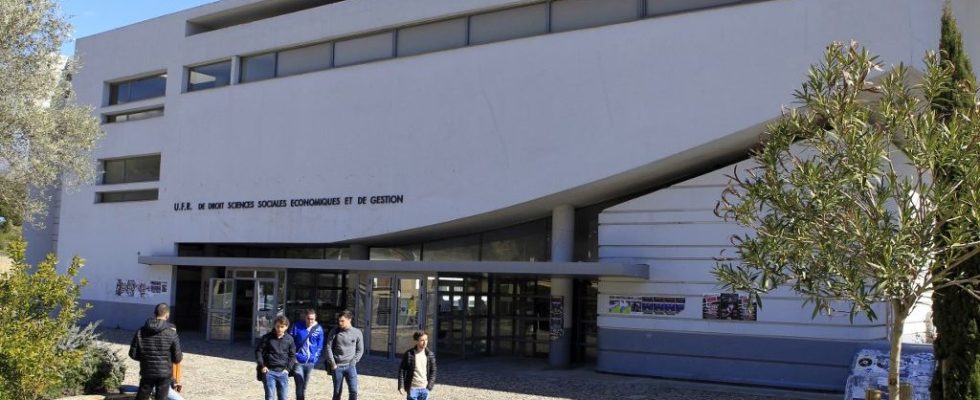“On the continent, they say: ‘Corsica is France’, but that’s not true”, introduces Margot, a language student at the University of Corte, in central Corsica. “You only have to see how we fought to enforce our rights to allow political prisoners to be incarcerated here (reference to Pierre Alessandri and Alain Ferrandi)”. In the university town of the island, surrounded by mountains with peaks exceeding 2,000 meters and with decrepit walls, it is impossible not to measure the significance of political nationalism. Here more than elsewhere, the slogans, the references to the FLNC in all its components, to a certain hostility vis-à-vis the central power of Paris, are clearly visible.
“Corsican youth is a youth in search of identity”, perceives Pierre-Joseph Paganelli, doctoral student in geography and president of the CGC (cunsulta di a ghjuventu corsa, consulate of Corsican youth), one of the three student unions specific to the ‘island. A quest due in particular “to the negation of the Corsican language and the lack of recognition of our people”, he develops. So much so that the young Corsicans “react vigorously to everything related to Corsica. Much more than what to do with France, we see it on pension reform, for example. Because anything related to Corsica will affect our pride,” explains Léa, who is taking an Italian degree. Like last year, following the aggression of Yvan Colonna in his prison where the power of the riots had been able to surprise sight of the continent. Urban violence which was accompanied by a resurgence of political violence with the appearance of a new clandestine group, the GCC, for “Ghjuventu Clandestina Corsa” (GCC, Corsican clandestine youth) and the return of an FLNC to front of the stage.
For Ersilia, “this quest for identity crushes all the others, in particular social demands”, explains the young student in eco-management under the gaze of the giant fresco by Pascal Paoli, decorating one of the university buildings. In fact, their claims and concerns revolve around two axes: “Resident status in order to find accommodation and recognition of our people and our language without being treated as racist”, summarizes Léa.
There remains, however, an assertion lately of an extreme right-wing position which is reflected on the walls as “French shit”, “Islam Fora [islam dehors] and at the ballot box. Marine Lepen came first in the two rounds of the presidential election and collected 58%, during the second in Corsica. An assertion certainly not specific to Corsica but which contrasts with the result of the local elections dominated by the nationalists and Corsican separatist.
“If Corsican identity is no longer based on language, then it will be based on blood”
“The politics here are very nationalistic but sometimes they deviate from the basic idea with a racist problem”, notes Liam who observes more and more of the speech explaining that “if you bring in foreigners, we will lose our culture” .
An identity withdrawal caused in part by the impossibility of expressing theirs. A prohibition recalled last week again by a deliberation of the administrative court prohibiting the Corsican Assembly from using their language for the debates. “If the Corsican identity is no longer based on language, then it will be based on blood, religion and there we switch to the far right”, analyzes Sébastien Quenot, lecturer at the University of Corte. “That is the problem,” adds Pierre-Joseph Paganelli, president of the CGC student union. “If we can no longer make Corsicans by language, how do we make them, then? »
“All this fuels resentment and creates a kind of ”corsitude””, continues the academic. An attitude where one wants to be more Corsican than the Corsicans. “I think it’s just inherent in our generation,” thinks Jade, an art student. “This identity crisis is above all to show that we exist. I can clearly see young people playing FLNC on Instagram, with plastic guns. They invent a life for themselves. It looks like rappers who play the dealer, “she laughs.
With a consequence also for the few students from the continent, such as Maéva and Clémence, who study law. “The Corsicans don’t mix too much. We, for example, are not too aware of what is going on, of the meetings, ”they note. “We knew, but at this point…”.
A little later in the day, early evening. A group of about fifteen students come out of the room in the basement of a bar in Corte. “For me, being Corsican means being Catholic,” a young man told a friend. It was difficult to find out more.

